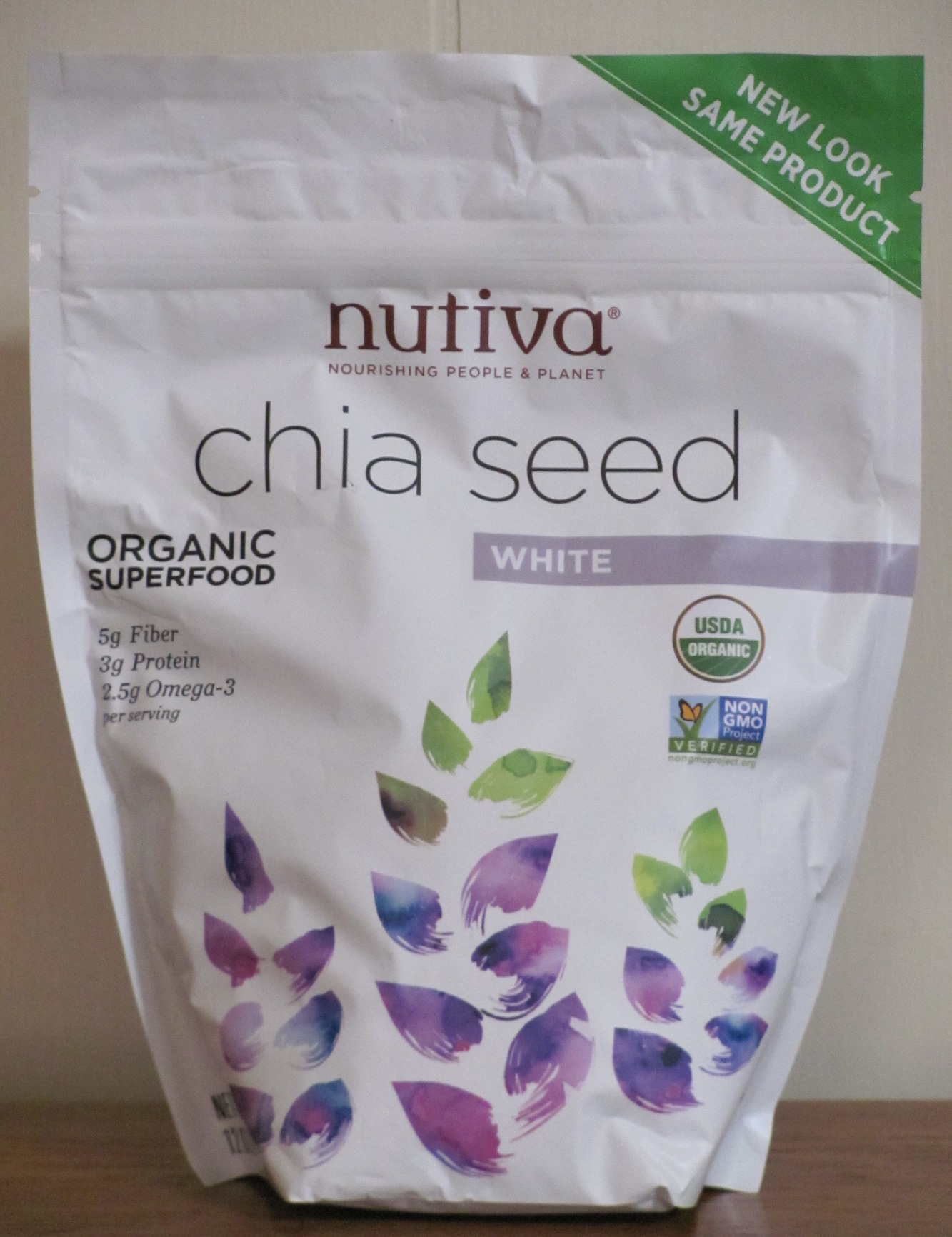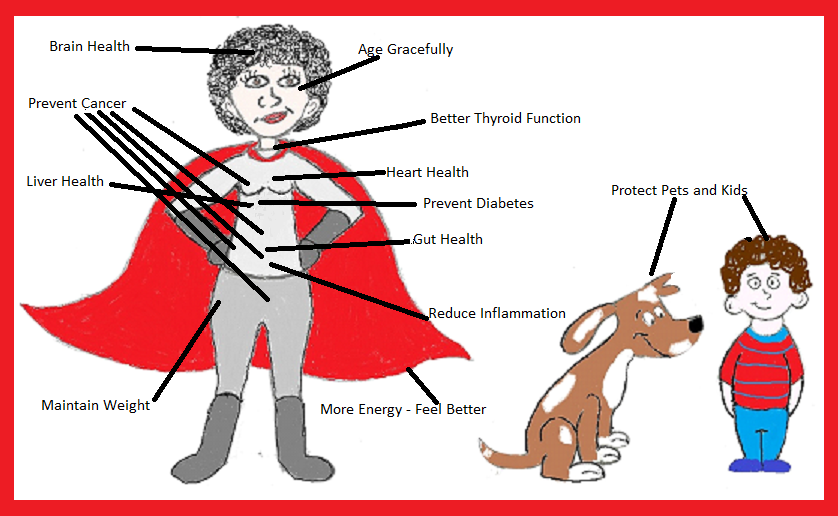8 Supplements For Inflammation
Inflammation is part of your body’s immune response and short-term inflammation (acute) is a good thing. But, long-term or chronic inflammation is not.
Why? - Because there is no doubt in the scientific community that chronic inflammation causes health problems and diseases. These include allergies, asthma, arthritis, cancer, diabetes, Parkinson’s Disease, Alzheimer’s, heart disease and obesity.
There are many things that can cause chronic inflammation in your body, including certain foods, sugar and stress. Obesity is characterized by a state of chronic low grade inflammation that is closely associated with the development of obesity-related diseases, like atherosclerosis, hypertension, and insulin resistance leading to type 2 diabetes.
Plus, your constant exposure to Endocrine disrupting chemicals like BPA and phthalates, pesticides like atrazine and chloropyrifos, POPs (persistent organic pollutants ) like PCBs and PFCs (found in stain and stick resistant products), nanoparticles and toxins in the air, have all been linked to body inflammation.
Because there are multiple causes for body inflammation, taking supplements is one way to protect your health. Reducing the inflammation in your body also involves adopting an anti-inflammatory diet, and reducing toxic chemical exposure and stress.
Supplements help reduce body inflammation in a couple of ways. Since inflammation creates free radicals, some supplements reduce inflammation by destroying free radicals. And some supplements interfere with the cascade of chemical reactions called inflammatory pathways.
1. Aged Garlic Extract
Aged Garlic Extract (AGE) is an odorless (yeah) liquid product created from prolonged extraction of fresh garlic at room temperature. It contains a potent antioxidant and anti-inflammatory called sulforaphane (also found in cruciferous vegetables), plus antioxidant flavonoids like allixin and selenium, saponins and essential macro- and micronutrients.
The best known and most highly recommend AGE is Kyolic Aged Garlic Extract. It's what I use. Just take 1/4 teaspoon twice a day with food.
2. Spirulina
Spirulina is a type of blue-green algae with strong antioxidant effects. Studies have shown that it reduces inflammation, leads to healthier aging and may strengthen the immune system.
Spirulina has been evaluated by the US Pharmacopeial Convention and is considered safe. According to research, the recommended dose is 1–8 grams per day.
3. Ginger
Ginger is a well-known anti-inflammatory. Two components of ginger, gingerol and zingerone, reduce the inflammation linked to colitis, kidney damage, diabetes and breast cancer. And a recent study concluded that ginger extract could one day be a substitute to nonsteroidal anti-inflammatory drugs (NSAIDs).
And it’s easy to add ginger to your diet. You can add a few tablespoons to your diet by grating ginger over a salad or into a stir fry. Or you could grate one to two teaspoons and simmer it in a pot with hot water for at least 10 minutes to make an anti-inflammatory tea.
You can drink ginger tea warm or cold, flavored with honey and
lemon, or fruit juice.
Another option is fermented ginger, called a ginger bug. Ginger bugs can be used to make a variety of fizzy drinks.
BUT, to reap the greatest benefits from ginger try ginger capsules. Look for brands that use “super-critical extraction,” because it results in the purest ginger and take with food to avoid an upset stomach. Start with a dose of one 100- to 200-mg ginger capsule each day. Do not use ginger capsules if you take a blood thinner.
4. Omega 3
Omega-3 fatty acids are vital to good health. They can decrease the inflammation associated with diabetes, heart disease, cancer and many other conditions.
Plus, western diets tend to include a lot of foods with Omega 6. Eating too many sources of Omega 6 and not enough Omega 3 creates an imbalance that contributes to your body inflammation.
However, fish, a common source of Omega 3, can also contain high levels of POPs. These are toxic chemicals that resist being broken down. They build up in animal fat, including yours.
The POPs in the fish you eat become your POPs. And exposure to them is also a source of chronic inflammation.
So to add Omega 3 to reduce inflammation and balance your Omega 3 – Omega 6 ratio without creating new sources of inflammation, use what I call Clean Sources of Omega 3.
That means don’t rely solely on fish. Opt for
less toxic sources of Omega 3, like Chia Seeds, Ground Flaxseed, Hemp Seed and English
Walnuts.
5. Curcumin
Curcumin is a component of the spice turmeric. It is a potent anti-inflammatory supplement that reduces inflammation in a wide range of diseases.
It can decrease inflammation in diabetes, heart disease, inflammatory bowel disease and cancer, to name a few. Curcumin also reduces inflammation and improves symptoms of osteoarthritis and rheumatoid arthritis.
But, curcumin is poorly absorbed when taken on its own. You can boost its absorption by as much as 2,000% by taking it with piperine, found in black pepper.
Choose a supplement that contains piperine or bioperine, which works just like piperine to increase absorption. A great option because it also contains gingeris Curcumin with Ginger and BioPerine.
The recommended dosage is 100–500 mg daily, when taken with piperine.
6. Alpha-Lipoic Acid
Alpha-lipoic acid (ALA) is both an antioxidant and anti-inflammatory. Not only does it defend against free radicals, but it also helps boost the efficacy of other antioxidants like vitamin C and vitamin E.
And several studies show that it reduces the inflammation linked to insulin resistance, cancer, liver disease, heart disease and other disorders. As an anti-inflammatory it inhibits the release of proinflammatory cytokines.
Cytokines are signaling molecules excreted from immune cells. Proinflammatory cytokines initiate inflammatory responses while anti-inflammatory cytokines act to reduce inflammation and promote healing. Excessive chronic production of proinflammatory cytokines contribute to inflammatory diseases.
The amount of ALA your body produces declines as you age or when your immune system is compromised. An ALA supplement can improve your body’s ability to fight inflammation. The recommended dosage is 300–600 mg daily.
7. Lycopene
Lycopene is a main component of red-colored fruits and vegetables. Studies have found it has both antiinflammatory and anticancer effects.
And there is a strong connection between body inflammation and cancer. Lycopene may decrease the incidence of breast cancer, prostate cancer, and lung cancer.
Besides consuming lots or organic tomatoes and tomato products, consider using organic tomato powder to reap the anti-inflammatory benefits of lycopene.
Add 1.5 level teaspoons in with your "green" smoothie or veggie juice. Or try mixing into your favorite tomato-based soup and salsa recipes for a concentrated boost of nutrition.
How about a mild zesty tomato tonic? Mix to taste with filtered water, a squeeze of lemon, then add a dash of some of your favorite dried spices such as black pepper, cayenne pepper, basil, oregano and/or cilantro.
8. Blueberries
Blueberries are a well- known source of antioxidants in your
diet. Especially wild lowbush blueberries.
Studies have found that wild lowbush blueberries (Vaccinium angustifolium Ait) provide the most anti-inflammatory and antioxidant benefits. They are a rich source of anthocyanins and other flavonoids with anti-inflammatory activities.
So eat them fresh, frozen, dried or powdered. Be aware, most blueberry powder is made from high bush blueberries though. So read the labels or try bilberry powder as a really good alternative.
The less commonly known Bilberries (Vaccinium myrtillus L.), are closely related to blueberries. Add Bilberry powder or dried bilberries to drinks, smoothies, cereals and baked goods to reduce body inflammation.
The supplements listed here are an effective way to reduce body inflammation. But, the best inflammation reducing strategy should include reducing the sources of chronic inflammation, like toxic chemicals, certain foods and stress.







